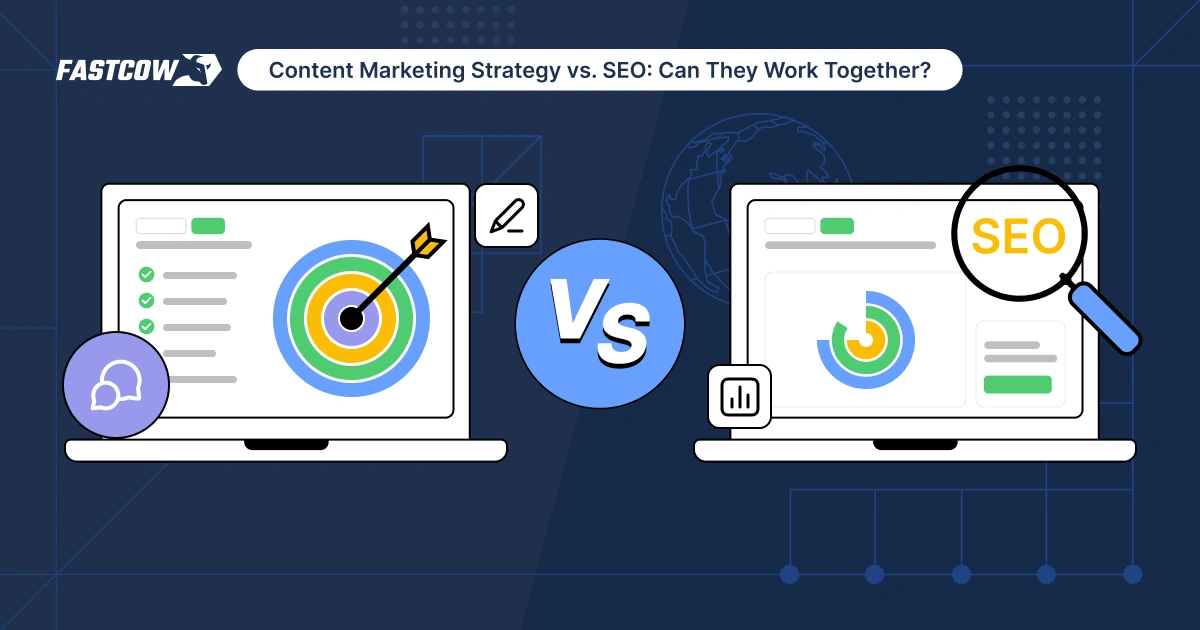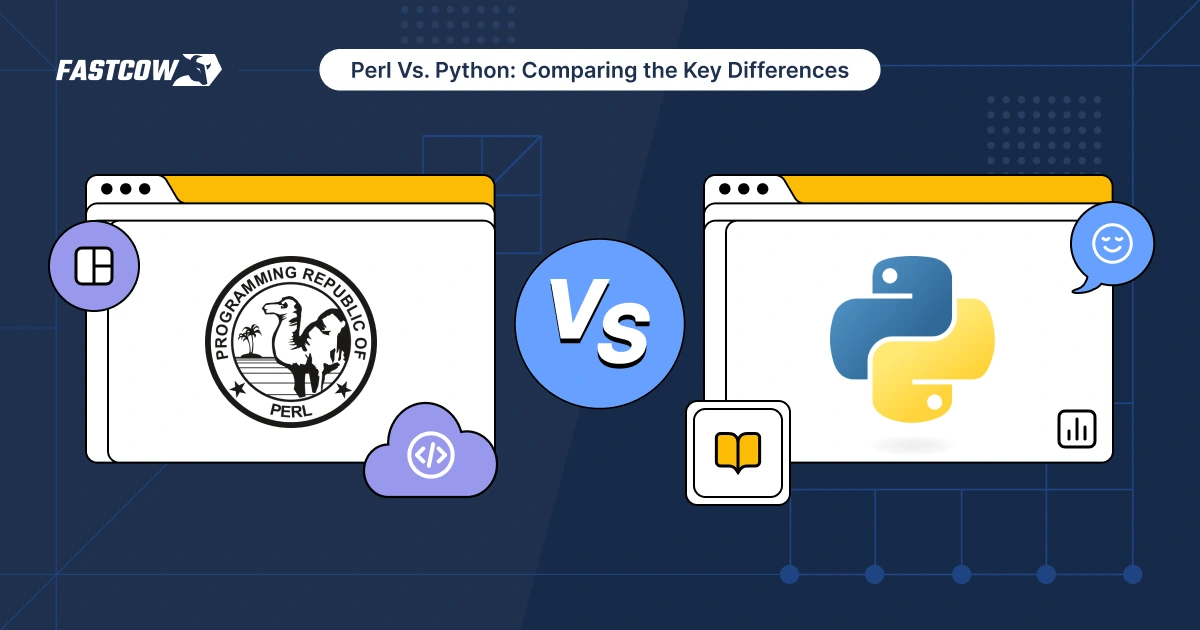
Blogging is one of the most effective ways to share knowledge, build an audience, and grow a business. Whether you are an individual, a small business, or a large company, a blog can help you reach more people and establish your presence online.

A well-written blog can boost your website traffic, improve your brand’s credibility, and generate income. It also helps personal growth by improving writing skills, encouraging learning, and building connections.
- Top 15 Benefits of Blogging Aimed for Success
- Builds Brand Authority
- Improves SEO and Organic Traffic
- Generates Leads and Sales
- Strengthens Customer Relationships
- Establishes a Unique Brand Voice
- Positions You as an Industry Expert
- Facilitates Networking and Collaboration Opportunities
- Generates Leads and Conversions
- Builds Long-Term Digital Assets
- Supports Social Media Marketing
- Helps You Stand Out from Competitors
- Provides Long-Term Benefits
- Increases Website Traffic
- Supports Business Growth
- Helps You Earn Passive Income
- FAQs
Let’s explore the top 15 advantages of blogging and how it can contribute to success.
Top 15 Benefits of Blogging Aimed for Success
Whether you want to build a brand, attract customers, or share knowledge, blogging offers many advantages. Here are the top 15 benefits of blogging and how it can help you succeed.
1. Builds Brand Authority
Blogging helps you establish yourself or your business as an expert. When you consistently share valuable and well-researched content, people start to trust your knowledge. Readers see you as a reliable source of information, which builds credibility over time.
Here is how blogging builds brand authority:
- Sharing Expert Insights: Consistently posting well-researched and informative articles positions you as a thought leader. For example, businesses that publish regular blog content generate 67% more leads than those that don’t.
- Providing Solutions to Reader Problems: A blog that answers common questions or offers solutions builds trust. If your content helps people, they will return for more information and recommend your blog to others.
- Citing Data and Research: Using real statistics, case studies, and expert opinions makes your content more credible. Readers are more likely to trust content that is backed by facts.
- Engaging with Your Audience: Responding to comments, questions, and feedback on your blog helps build relationships. This interaction makes your blog feel more personal and trustworthy.
Building brand authority through blogging takes time, but the long-term benefits are worth it. The more valuable, accurate, and engaging your content, the more people trust and recognize your expertise. A strong blog can set you apart from competitors and open up new growth opportunities.
2. Improves SEO and Organic Traffic
One of the biggest advantages of blogging is that it helps your website rank higher on search engines like Google. When you create high-quality content using relevant keywords, search engines recognize your site as a valuable source of information. This improves your chances of appearing in search results when people look for topics related to your business.

Here is how blogging boosts your website SEO:
- Increases Keyword Rankings: Blogs allow you to naturally include important keywords related to your industry. The more relevant content you create, the better your chances of ranking for multiple search terms.
- Keeps Your Website Fresh: Search engines prefer websites that are updated regularly. Posting new blog articles shows that your site is active and relevant, which can improve its ranking.
- Earns Backlinks: High-quality blog posts encourage other websites to link to your content. According to a HubSpot study, websites with blogs earn 97% more backlinks than those without, which helps improve SEO.
- Boosts Internal Linking: Blogs allow you to link to other pages on your website. This helps search engines understand your site's structure and improves navigation for visitors.
Organic traffic refers to visitors who find your website through search engines without paid ads. Most of the website traffic comes from organic searches. This means blogging can bring consistent and long-term visitors without expensive marketing campaigns.
3. Generates Leads and Sales
Blogging is a great way to attract potential customers and turn them into buyers. When you share useful content, people visit your website to learn more. If they find value in your offer, they may be interested in your products or services.
How Blogging Helps Generate Leads
- Educates Your Audience: Blogs provide helpful information that answers customer questions. When people trust your knowledge, they are more likely to do business with you.
- Encourages Action with CTAs: A blog post can include a Call-to-Action (CTA), like “Sign up for a free trial” or “Download our guide.” This encourages readers to take the next step, turning them into leads.
- Builds Email Lists: Many businesses offer free content like eBooks or newsletters in exchange for an email address, which helps them get more leads than those that don’t.
- Attracts Targeted Visitors: When your blog focuses on topics related to your business, you attract people who are already interested in your offer. These visitors are more likely to become customers.
Blogging can also help to boost sales. Here is how:
- Blogs help build trust, and people buy from businesses they trust.
- They allow you to showcase case studies, success stories, or product benefits.
- You can include links to product pages or services, making it easy for readers to make a purchase.
4. Strengthens Customer Relationships
Blogging helps businesses connect meaningfully with their audience. It is not just about selling products or services; it is about building trust and forming long-term relationships. When customers see that you provide helpful and engaging content, they are more likely to stay loyal to your brand.
Blogging can help to strengthen business relationships with customers. Here is how:
- Provides Valuable Information: A blog lets you answer customer questions, share industry insights, and offer useful tips. People who find your content helpful are more likely to return for more.
- Encourages Engagement: Blogs create opportunities for interaction. Readers can leave comments, ask questions, and share their thoughts. Responding to their comments makes them feel heard and valued.
- Keeps Customers Updated: A blog is a great way to share news, product updates, and upcoming events. Keeping customers informed strengthens their connection with your brand.
- Creates a Community: Regular blogging can help create a community of loyal followers. People who enjoy your content may subscribe to your newsletter or follow your social media, leading to long-term relationships.
Strong customer relationships are key to business success, and blogging is an effective way to build them. You can turn one-time buyers into loyal customers by offering valuable content, engaging with your audience, and staying connected.
5. Establishes a Unique Brand Voice
Blogging helps businesses and individuals develop a distinct brand voice. Your brand voice is how you communicate with your audience—it reflects your personality, values, and expertise. A strong and consistent voice makes your brand memorable and helps you stand out from competitors.
Blogging can help to create a brand voice by:
- Defines Your Personality: Your blog’s tone and style set the personality of your brand. Whether your tone is professional, friendly, or casual, it helps people connect with your content.
- Communicates Your Values: Blogging allows you to share your company’s mission, beliefs, and goals. Readers who align with your values are more likely to trust and support your brand.
- Makes Your Brand Recognizable: A unique voice helps readers remember your content. Consistent branding also increases revenue. A strong blog voice contributes to this consistency.
- Engages Your Audience: A well-crafted blog with a clear voice keeps readers interested. People who enjoy your writing style are more likely to return for more content.
A blog is one of the best ways to establish and refine your brand voice. When your writing style is clear and authentic, readers feel more connected to your brand. Over time, this leads to greater trust and customer loyalty.
6. Positions You as an Industry Expert
Blogging is a powerful way to show your knowledge and establish yourself as an expert in your field. When you regularly share valuable insights, people start seeing you as a trusted source of information. This builds credibility and opens new growth opportunities.
Here is how blogging can help you become an industry expert:
- Showcases Your Knowledge: Writing about industry trends, best practices, and solutions to common problems proves that you understand your field. The more useful your content, the more people will trust your expertise.
- Attracts a Loyal Audience: Readers return to blogs that provide reliable information. Over time, they will see you as a go-to expert and recommend your content to others.
- Gets Noticed by Industry Leaders: High-quality blog posts can grab the attention of professionals, influencers, and even media outlets. This can lead to collaboration opportunities, interviews, or guest post invitations.
- Supports Public Speaking and Networking: If you aim to speak at events or conferences, a strong blog can help establish your authority. Many speakers and consultants use their blogs to showcase their expertise before getting invited to industry events.
Consistently sharing valuable knowledge through blogging can help position you as an industry expert. When people trust your insights, they are more likely to follow your advice and recommend your brand to others.
Also Read: How to Start a WordPress Blog in 2025: A Simple Guide.
7. Facilitates Networking and Collaboration Opportunities
Beyond building connections, blogging creates opportunities for meaningful collaborations. Whether it’s partnering with other businesses, joining expert panels, or co-hosting events, a strong blog can lead to valuable partnerships.
Blogging also encourages networking and collaboration:
- Attracts Business Partnerships: Companies looking for expertise may approach you for joint ventures, co-branded content, or product collaborations.
- Creates Opportunities for Joint Webinars and Events: Industry leaders often collaborate on webinars, podcasts, or live events, bringing mutual benefits in visibility and audience growth.
- Leads to Affiliate and Sponsorship Deals: Brands looking to promote their services often partner with authoritative blogs to reach targeted audiences.
- Encourages Cross-Promotion: Blogging gives you the chance to collaborate with other bloggers and businesses through content sharing and promotions.
Collaboration through blogging leads to growth, credibility, and new opportunities. A well-positioned blog can attract partnerships that benefit all involved.
8. Generates Leads and Conversions
Blogging is a powerful tool for turning website visitors into leads and customers. When people find helpful content on your blog, they are more likely to trust your brand and take action, such as signing up for a newsletter or making a purchase.
Here is how blogging helps generate leads and conversions:
- Encourages Email Signups: Blogs can offer free resources, like eBooks or checklists, in exchange for an email address. This helps build a list of potential customers who can be nurtured through email marketing.
- Supports Call-to-Action (CTA) Strategies: Every blog post is an opportunity to guide readers toward the next step. Whether it’s downloading a free guide, booking a consultation, or checking out a product, clear CTAs help convert visitors into customers.
- Builds Trust for Higher Conversions: People are more likely to buy from brands they trust. Blogs that provide useful and well-researched information help establish credibility, increasing the chances of a sale.
- Drives Sales Without Hard Selling: Unlike ads, blogs educate rather than push products directly. Readers who gain value from a blog post may explore your services naturally, leading to higher-quality leads.
9. Builds Long-Term Digital Assets
Unlike social media posts that disappear quickly, blog content stays online and continues to generate value over time. A well-written blog post can attract visitors, generate leads, and improve brand visibility for years.
Blogging can help companies create long-term digital assets.
- Evergreen Content Brings Continuous Traffic: Posts covering timeless topics, like “How to Start a Business” or “Best SEO Practices,” remain relevant and continue to attract readers for years.
- Improves SEO Over the Long Run: High-quality blog posts rank on search engines and stay visible for months or even years. This means a single well-optimized article can bring ongoing traffic without extra effort.
- Supports Other Marketing Efforts: Blog posts can be repurposed into videos, social media content, email newsletters, or e-books, extending their usefulness across multiple platforms.
- Acts as a Knowledge Base: A blog can serve as an information hub, helping both new and existing customers find answers to their questions without needing direct support.
Blogging is an investment that pays off over time. Unlike ads that stop working once the budget runs out, blog content keeps driving results for years, making it one of a business's most valuable digital assets.
10. Supports Social Media Marketing
A blog provides valuable content that can be shared across social media platforms. Instead of struggling to find content to post, businesses can use blog articles to keep their audience engaged.
Blogging is also great for social media marketing. It can:
- Provides Shareable Content: Blog posts can be shared on Facebook, LinkedIn, Twitter, and other platforms, increasing their reach and driving more traffic to the website.
- Improves Brand Visibility: When people share your blog posts, more potential customers discover your brand. This helps grow your audience without spending extra on ads.
- Drives Traffic from Social Media to Your Website: Each time someone clicks on a blog post link, they land on your website. This increases website visits and potential customer conversions.
- Positions You as a Thought Leader: Posting insightful blog content on social media builds your reputation. When people see you consistently sharing valuable knowledge, they recognize you as an expert in your field.
A blog and social media work together to expand your reach. Blogging provides valuable content, while social media helps spread it to a wider audience. This combination strengthens your marketing efforts and brings in more customers.
11. Helps You Stand Out from Competitors
Blogging gives businesses a way to showcase their unique voice and expertise. In a crowded market, a well-maintained blog helps you stand out by offering valuable insights and solutions that competitors may not provide.
Blogging can help your business stand out from competitors. Here is how:
- Showcases Your Expertise: By sharing in-depth knowledge and industry trends, you prove you are a field leader. Consumers feel more positive about a brand after reading custom content.
- Builds Brand Personality: A blog allows you to express your brand’s values, mission, and unique approach. This creates a stronger emotional connection with your audience.
- Provides More Value Than Competitors: Businesses that blog consistently offer customers more resources than those that don’t. This makes your brand the go-to choice when people need information.
- Attracts Niche Audiences: A blog allows you to target specific customer groups with tailored content. This helps you reach the right audience more effectively than general advertisements.
Blogging helps you stand out in your industry by proving your knowledge and delivering value. A strong blog creates a lasting impression, giving you an edge over competitors.
12. Provides Long-Term Benefits
Unlike social media posts or ads that disappear quickly, blog content stays on your website and continues to attract visitors over time. A single blog post can bring traffic and leads for months or even years.

Here is how blogging delivers long-term value:
- Evergreen Content Brings Ongoing Traffic: Some blog posts, like how-to guides or industry insights, stay relevant for years and continue to attract visitors long after they are published.
- Boosts SEO Over Time: Search engines reward consistent, high-quality content. Older blog posts can still rank on Google and bring in organic traffic even after new ones are published.
- Strengthens Brand Authority Over Time: The more blog content you produce, the more trustworthy and knowledgeable your brand appears. This helps build credibility and attracts long-term customers.
- Creates a Valuable Knowledge Base: A well-organized blog serves as a resource for both new and returning customers. It answers common questions and provides useful information without needing constant updates.
Blogging is an investment that keeps paying off. A single post can drive traffic, leads, and credibility for years, making it one of the most cost-effective marketing strategies.
Also read: 5 Ways To Improve Your WordPress SEO Without Coding.
13. Increases Website Traffic
Blogging is one of the best ways to increase website traffic. Each new blog post creates another opportunity for people to find your site through search engines, social media, and backlinks.
Blogging can help to increase website traffic. Here is how:
- More Indexed Pages on Search Engines: Websites with more indexed pages have a higher chance of ranking on Google. Businesses that blog regularly see more website visitors than those that don’t.
- Boosts Organic Traffic: A well-optimized blog post can appear in search results for months or years, bringing in continuous traffic without paid ads.
- Encourages Social Media Shares: Blog posts give people something valuable to share on social media, increasing your reach and driving more traffic back to your site.
- Brings Referral Traffic Through Backlinks: If other websites find your content useful, they may link back to it. These backlinks send more visitors to your site and improve your search rankings.
More traffic means more chances to generate leads and sales. A well-maintained blog helps attract new visitors while keeping existing ones engaged.
14. Supports Business Growth
Blogging plays a key role in a business's long-term success. It helps build brand awareness and drives sales, which contribute to growth.
Here is how blogging helps a business grow:
- Attracts More Potential Customers: A blog brings in people who are actively looking for solutions that your business provides. This increases your chances of converting visitors into customers.
- Builds a Loyal Audience: Regular blogging helps you develop a strong relationship with your audience. People who trust your content are more likely to support your business in the long run.
- Expands Market Reach: Blogging allows businesses to reach global audiences without extra costs. A single post can attract readers from different countries, expanding your customer base.
- Enhances Brand Authority: As your blog grows, so does your reputation. Being recognized as a trusted source in your industry makes customers more likely to choose your business over competitors.
Blogging is not just about writing. It is a strategy that drives business success. It brings in customers, increases revenue, and strengthens brand authority, making it an essential tool for growth.
15. Helps You Earn Passive Income
A blog can be more than just a marketing tool; it can generate income. Many businesses and individuals earn passive income by monetizing their blogs in different ways.
Here are some ways you can make money through blogging:
- Affiliate Marketing: By promoting products or services and earning a commission on sales, bloggers can make money while providing useful recommendations to their audience.
- Sponsored Content: Companies pay bloggers to write about their products, increasing exposure while providing value to readers.
- Advertising Revenue: High-traffic Blogs can earn money by displaying ads through platforms like Google AdSense. Some successful bloggers earn thousands of dollars per month this way.
- Selling Digital Products: E-books, courses, templates, and guides are great ways to generate passive income. Once created, they can be sold repeatedly with minimal effort.
A well-planned blog can become a long-term income stream. With the right monetization strategy, blogging can bring financial rewards while sharing valuable content.
Also Read: WordPress vs Blogger: What’s Best for Your Website Blog?
Final Thoughts
Blogs represent a strong instrument that leads to successful outcomes. Business growth, together with trust-building functions and brand awareness expansion, results from blogging practices. Blogging gives organizations endless advantages to attract customers, boost SEO, and create passive income streams for their businesses.
You need a reliable and hassle-free hosting solution to make the most of your blogging efforts. With FastCow’s Managed WordPress Hosting, you get speed, security, and expert support—so you can focus on creating great content while we handle the technical details. Start your blog today with FastCow!
FAQs
1. Why are blogs important for businesses?
Blogging provides valuable benefits to businesses through its search engine optimization support, traffic generation, and authority development capabilities. Implementing blogs helps companies draw new customers and sustain ongoing customer relationships.
2. What are the benefits of having a blog for your business?
When your business implements a blog, it achieves three main benefits: boosting visibility, generating better leads, and building deeper customer relationships. The system assists with content marketing strategies.
3. How can blogging help your business grow?
The primary reason businesses use blogging techniques is that they naturally attract visitors to their site while simultaneously increasing the number of conversions. Consistent blogging benefits your business by maintaining audience attention and building stronger brand power.
4. What are the blog marketing advantages and disadvantages?
The essential benefits of blogging to businesses include better search engine optimization, improved reader trust, and greater sales potential. Producing quality content requires long periods of work; however, businesses benefit more from blogging than they experience drawbacks.
5. Who is blogging for, and why do people blog?
Businesses, professionals, and individual writers resort to blogging to distribute knowledge or expand their readership base. Why are blogs useful? Through blogging platforms, businesses achieve long-term achievement and marketing reinforcement and carve out professional credibility.
































